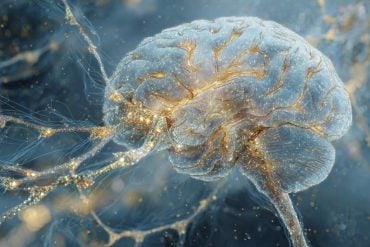Summary: A new study reports on the impact of the events of 9/11 on the mental health of people in Denmark.
Source: Aarhus University.
This is the conclusion of a recent population-wide study from Denmark, which demonstrates a “significant and immediate” spike in the diagnoses of trauma and stressor related disorders (e.g. adjustment disorders or post-traumatic stress disorder) in Denmark in the weeks and months after the traumatic events of September 11, 2001, even though the Nordic country was not directly impacted by the attacks.
The study, which was financed by the Carlsberg Foundation, was carried out by political scientists and medical researchers from Aarhus University, University of Copenhagen and Stanford University. It has just been published online ahead of print in the American Journal of Epidemiology.
In the article, the authors argue that their finding “sadly confirms that one of the alleged purposes of (certain types of) terrorism – to generate mass-scale attention and intimidation – is in fact achieved”.
Specifically, the Danish study documents a 16 percent increase in trauma and stressor related disorders recorded by psychiatric services in the week right after the September 11 attacks. Remarkably, the effect persisted for an extended period after the initial shock, and half a year after the 9/11 attacks, the incidence of trauma and stressor related disorders remained elevated about 5 percent above the normal level. It did not return to normal until about a year after the attacks.

In the article, the authors also speculate about the role of mass media in generating the observed effect: “The extra-national character of the post-9/11 deterioration of mental health observed in this study also highlights the pronounced importance of mass media in transmitting stress-inducing information to populations in countries far removed from the target of the attack.”
Based on this observation, the authors argue that the effect of more recent and future terrorist attacks could be even stronger given the highly visual and real-time nature of today’s internet-based mass media.
Funding: Carlsberg Foundation funded this study.
Source: Bertel T. Hansen – Aarhus University
Image Source: NeuroscienceNews.com image is in the public domain.
Original Research: Abstract for “Increased Incidence Rate of Trauma- and Stressor-Related Disorders in Denmark After the September 11, 2001, Terrorist Attacks in the United States” by Bertel T. Hansen, Søren D. Østergaard, Kim M. Sønderskov and Peter T. Dinesen in American Journal of Epidemiology. Published online September 8 2016 doi:10.1093/aje/kww089
[cbtabs][cbtab title=”MLA”]Aarhus University “9/11 Impacted Mental Health Far Beyond US Borders.” NeuroscienceNews. NeuroscienceNews, 11 September 2016.
<https://neurosciencenews.com/9-11-mental-health-5011/>.[/cbtab][cbtab title=”APA”]Aarhus University (2016, September 11). 9/11 Impacted Mental Health Far Beyond US Borders. NeuroscienceNew. Retrieved September 11, 2016 from https://neurosciencenews.com/9-11-mental-health-5011/[/cbtab][cbtab title=”Chicago”]Aarhus University “9/11 Impacted Mental Health Far Beyond US Borders.” https://neurosciencenews.com/9-11-mental-health-5011/ (accessed September 11, 2016).[/cbtab][/cbtabs]
Abstract
Increased Incidence Rate of Trauma- and Stressor-Related Disorders in Denmark After the September 11, 2001, Terrorist Attacks in the United States
The terrorist attacks that occurred on September 11, 2001 (hereafter referred to as 9/11) in the United States had a profound impact on the physical and mental health of Americans, but the effects beyond the United States are largely unknown. To understand the wider aftermath, we examined the consequences of the 9/11 attacks on mental disorders in the Kingdom of Denmark. Utilizing population data from the Danish Psychiatric Central Research Register from 1995 to 2012, we used a time-series intervention approach to estimate the change in the incidence rate of mental disorders after the 9/11 attacks. Based on analyses of 1,448,250 contacts with psychiatric services, we found that the attacks were followed by an immediate 16% increase in the incidence rate of trauma- and stressor-related disorders. This surge dissipated approximately a year after 9/11. In contrast, no similar increases were found for other disorders. This is consistent with the prominent role of external stressors in the etiology of trauma- and stressor-related disorders. The results indicate that the effects of 9/11 on mental disorders extended across the Atlantic Ocean to Denmark. Thus, the impact of terrorist attacks on mental health is likely not limited to inhabitants of the country under attack; it also extends to people far away and without immediate relation to it.
“Increased Incidence Rate of Trauma- and Stressor-Related Disorders in Denmark After the September 11, 2001, Terrorist Attacks in the United States” by Bertel T. Hansen, Søren D. Østergaard, Kim M. Sønderskov and Peter T. Dinesen in American Journal of Epidemiology. Published online September 8 2016 doi:10.1093/aje/kww089






